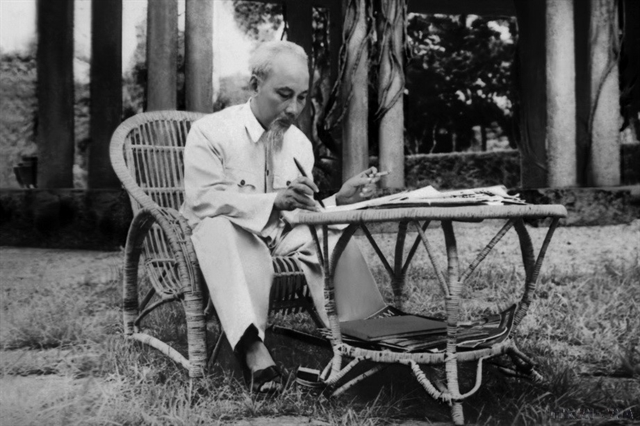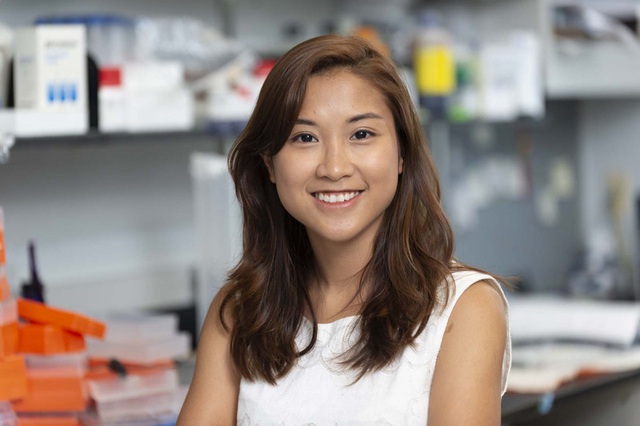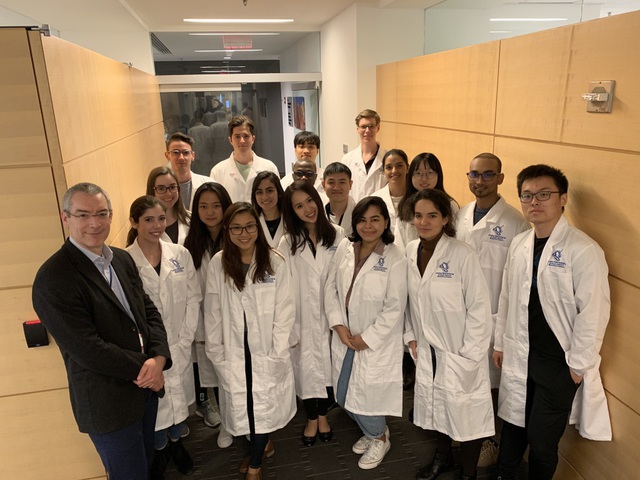 Features
Features

Trần Ngọc Thịnh spoke with Inner Sanctum about her journey to the Memorial Sloan Kettering Cancer Centre and how her expertise can be applied in cancer treatment.

|
| Trần Ngọc Thịnh was born in 1994 in Hồ Chí Minh City. She went to study abroad at the age of 16 and strived to win a series of full scholarships for undergraduate and graduate degrees in the US, Canada, the United Kingdom and the United Arab Emirates. Photo courtesy of Trần Ngọc Thịnh |
As a young girl, Trần Ngọc Thịnh, was always curious about the human body. Whenever she got a chance, she would ask her mother, a doctor, about how the body worked and the origins of illnesses. To be able to solve such questions has been a dream that she has nurtured ever since.
Now, as a doctoral degree student at the Memorial Sloan Kettering Cancer Centre on a full US$88,000 scholarship, Thịnh still devotes herself to such concerns. However, with expertise in computational biology using data and algorithms, such answers seem less blurry to her.
Thịnh spoke with Inner Sanctum about her journey to the centre and how her expertise can be applied in cancer treatment.
Inner Sanctum: Why has biology always been your passion?
Because my mother is a doctor, so since childhood I have heard many of her stories about human diseases. Whenever my mother went to work, I followed her, sat there and observed.
While working, my mother would explain the causes of diseases and how treatment helped us become healthier.
I found this very interesting. To me, the human body is like a puzzle made up of many small pieces. Each piece works together so a human body can function normally and stay healthy.
Our organs work in a very natural way. The heart beats, the lungs inflate, and they are all important parts of the body that, when combined together, create a wonderful machine.
I don’t know when, but biology became a passion for me by which I can find my answers to everything.
Inner Sanctum: What is the most important milestone in your career?
My high school time in Westtown School (Pennsylvania, US) helped me a lot in forming my mindset. I was very interested in sociology back then, and that was the first time I understood more about the complexities in American society, such as race and gender equality. There are many patients who do not get the care they deserve because of these problems.
Healthcare is not just about prescribing medicines and treating diseases. Every patient is different, with different circumstances and difficulties.
The mission of a medical profession is to help each patient receive the best possible access to healthcare. This is why my high school was really important. Although not related to biology, it helped me open my eyes a lot and was an important foundation for the formation of my professional ethics in the future.
Inner Sanctum: Can you explain your expertise in the field of oncology, as well as the importance of analysing big data and genomics in the treatment of cancer?
My work in computational biology, basically biological data analysis, helps me understand the nature of mutations in cancer. It helps us understand why certain cells do not work correctly, and from that we can find specific drugs for that problem.
The use of chemotherapy in cancer treatment was to treat generally, but lacked specificity. Chemotherapy only kills cells without distinguishing which ones are good or bad. Because of this, hair cells are also destroyed and so chemotherapy patients all experience hair loss.
Specificity is so important. My job is to ensure this specificity in cancer treatment.

|
| Trần Ngọc Thịnh (first row, third left) with colleges practising at MSKCC hospital. Photo courtesy of Memorial Sloan Kettering Cancer Centre |
Inner Sanctum: Many people panic when they think of cancer. As someone who specialises in cancer research and is regularly exposed to it, how do you feel? Are you ever afraid?
Personally, I spend most of my time working in the lab, and mostly just sit in front of the computer screen and work with numbers and data. Each patient only shows up on a list in a large file, so honestly, I have no fear of the disease.
What I fear is not this disease or death, but that the battle with cancer feels like facing a giant wall without knowing what is on the other side and when we will be able to overcome it.
Inner Sanctum: Can you name one person that played a vital role in your career?
On my journey, I am very fortunate to have learned from great lecturers, who have helped me to discover my passion despite the many times I did not believe in myself enough. One of them is Dr Nikolaus Schultz. I am currently a PhD student at Gerstner Sloan Kettering Graduate School (New York), under his guidance.
I admire him so much. Usually, people who work at research institutes will not spend much time on the examination and treatment of patients, but Dr Schultz is different. He cares about his patients.
I really like his way of thinking. He always has one question: "If we achieve a certain thing, will this change the way we view cancer?" Research is only meaningful if it is useful for cancer prevention. He has inspired me a lot and changed my career.
Inner Sanctum: What are your future plans? Will you come back to Việt Nam to help develop the country's medical system?
I will definitely come back to Việt Nam to help my country. Recently I have seen a lot of valuable research articles from Vietnamese doctors about genetic mutation data. This proves that Việt Nam is making great strides in cancer treatment. If I could put my knowledge into practice, that would be great.
The direction of cancer treatment in the world is now targeting personal life medicine. That is, the difference between patients with the same cancer based on different genetic mutations.
Due to different diseases, it is not possible to apply the same drug to different patients, so we must have a suitable treatment regimen for each person.
To do that, we must understand the characteristics of the disease, and know how the patient's genome is damaged. That is what my country is in need of support.
I also want to have a medical degree so that I can be both a researcher and a doctor, because if I only know research without clinical knowledge, it will be difficult to make changes. This decision was inspired by Dr Schultz whom I mentioned previously. VNS




